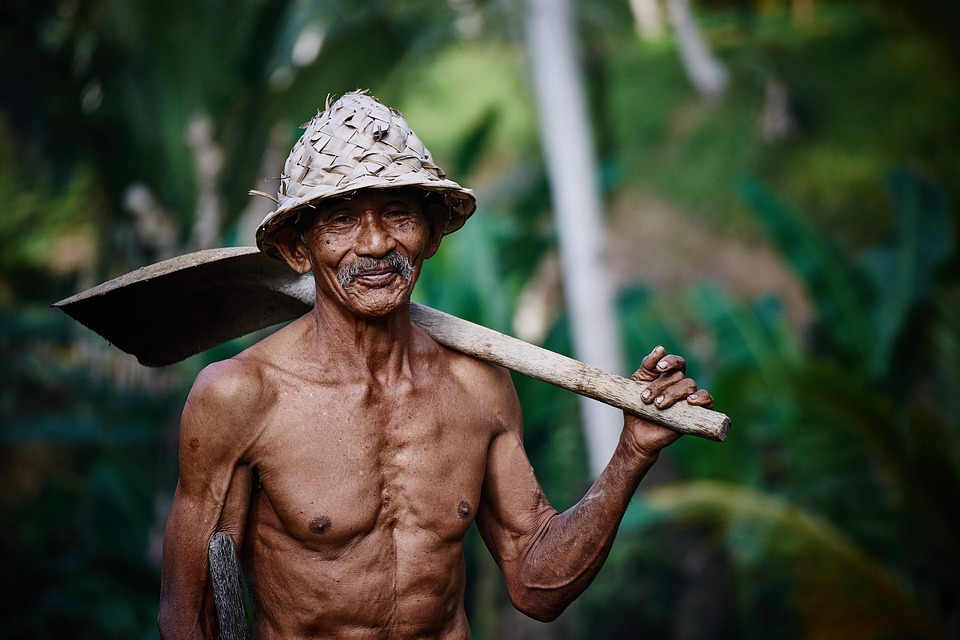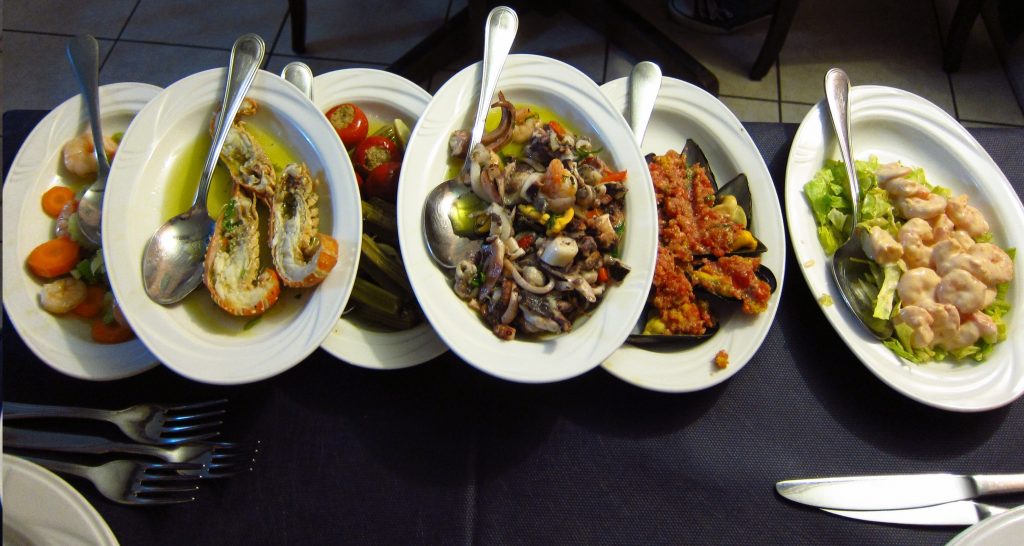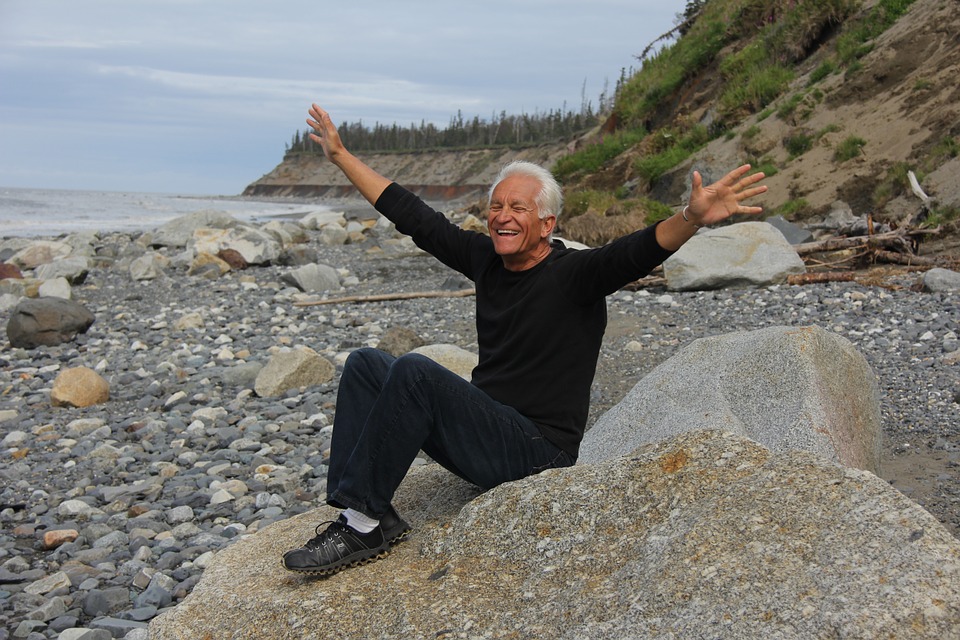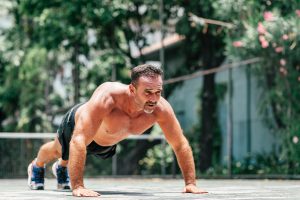

The impact of lifestyle on longevity is obviously something of great interest for us and for many researchers on a wide scientific spectrum.
One of the most interesting books that came out in recent years on the subject is “The Blue Zones” by David Buettner.
Buettner is a National Geographic journalist who has been investigating the places in the world where people live the longest and where the highest percentage of centenarians can be found.
These are people who reach the age of 100 and more. Buettner and his team of population researchers found 5 of these places in the world and dubbed them as Blue Zones.
The people in these areas have 3 times the average chance of reaching the age of 100. Needless to say that chronic diseases like heart disease, diabetes, and obesity are rare among them.
Interestingly, the places are diverse and located in different spots on the globe: Ikaria, which is an island of Greece; Sardinia, Italy; Okinawa, Japan; Nicoya, Costa Rica (which was an unexpected place, considering the fact that it is a developing-world location), and maybe the most surprising one: Loma Linda in California.
In each area, the team investigated what are the lifestyle components that help explain the area’s longevity.
What the people choose to eat, what kind and how much physical activity they get, what is the social structure and how they communicate inside of it, what kind of traditional medicine they use, and so forth.
At the end of the process, the team looked for common denominators for all 5 populations and came up with the cross-cultural practices that may explain the exceptional longevity and health of these populations.
The book ends with nine main lessons and practices learned from these populations that we can apply to our lifestyle.
The book is fascinating because it confirms some truths about how to achieve good health through direct conversations with people who have obviously achieved that and who are a living proof of that truth.
For example, Don Faustino from Nicoya, Costa Rica, who is 102 and still wakes up every Sunday at 4 am and marches to the local farmers market.
No Exercise, No Calorie Counting
What struck me the most is that the centenarians interviewed in the book don’t seem to make a big deal out of their remarkable health and longevity.
Their physical and mental health is not a product of calculated measures. They’re not monitoring themselves, they’ve never been to the gym, and they’ve definitely never heard about personal training.
These people don’t exercise, but they move organically: they walk to a friend’s house or to the market. They garden in their backyards.
Some of them have been working in farming all their lives. They live in environments that naturally force them to be physically active.
Movement has been incorporated into their day-to-day lives and has been an organic part of their lives, even still today.

Among all of the centenarians in the Blue Zones, there is great respect for food, and the culinary tradition goes centuries back.
Ikaria’s and Sardinia’s cuisine are a beautiful example of Mediterranean rustic cooking. In Okinawa, the preparation and eating of a meal is a meditative ritual.
Meals may be simple but made out of real food with ingredients often grown in the backyard. The fact that these people grew up before World War 2 and the times of industrial food, must play a role in their diet. For them, the concepts of “organic” or “farm to table” are not even concepts or trends—they’re just describing food.
Not Just Food and Movement
No doubt good diet and plenty of natural physical activity are essential as common denominators in the blue zones, but maybe, even more interesting were the less obvious and less tangible common elements in their lifestyles.
All of the centenarians have a strong cultural structure and a community that surrounds them.
Family is very important; many times, you see people who live with their children and grandchildren in the same house, or at least in proximity to their family.
Another common component for all populations is a sense of purpose. In Okinawa and Japan, they call it Ikigai: “the reason of being.”
Most of the centenarians have some religious or spiritual path. They know, and they’re decisive about the reason they get up in the morning. Either being part and serve their community, walk on their spiritual path or being family members; these people are not dealing with existential doubts.
A Great sense of humor is also common among them. At the age of 100, these are not obvious.
We tend to think about stressful life events as a negative impact on longevity. Not in this case.
Many of the centenarians experienced poverty, hunger, and stress that were a result of political issues. Centenarians in Okinawa, for example, had to live and survive through the hardship and danger of one of the bloodiest battlefields of World War 2.
Similar hardships were part of life in Ikaria, Greece. Stress in this case definitely made these people stronger.
Reading this book raises some serious doubts about the ideas of health and longevity in our modern environment. You cannot escape the fact that health, according to the Blue Zones, is much more than the nutrient ratio in your diet or how much you exercise.
In every population they visited, the team of researchers tried to isolate one or two components in the local diet, hoping to find the “secret” for the local population’s longevity.
Maybe it is the beans and goat milk in the diet of Ikaria and Sardinia? Maybe the sweet potatoes of Okinawa?
I suspect that they knew pretty early in their research that the attempt to reduce the explanation to one or two dietary components is not sufficient.
The psychological and social elements in our lives are as important as dietary elements, if not even more.
In the world of health and nutrition, you see so many people who follow a strict protocol of diet and exercise, monitoring themselves by spending thousands of dollars a year on cutting-edge testing and doing pretty much everything “right.” Yet, they’re not happy or exceptionally healthy.
Something is obviously missing in our society, and, unfortunately, community, purpose, and spiritual growth are not taken seriously enough as elements of health and longevity.
The Paleo Connection
The Blue Zones is not a Paleo book, and some of the diet conclusions and recommendations in it actually go against what is perceived as a paleo diet. It seems that the book is a little biased towards a plant-based diet with very small amounts of meat. Some of the diet assumptions are based on the old-fashioned approach of anti-fat and anti-animal fat.
On the other hand, we cannot ignore the fact that the blue zone populations have followed these diet principles for centuries and have proved to be healthy and long-living. Probably, another clue for us to understand that one diet or another is not a really good predictor for longevity.
This book is another affirmation that a good diet can’t be easily defined or measured by any criteria but one: eat real food. That is still the most resounding conclusion that can be made on the “perfect” diet.
All of the people interviewed eat real food that grew or lived, in most cases, right next to their living place.
“Local” and “organic” are obvious. They’re not even concepts.
Create Your Own Blue Zone
The most important takeaway here is not new. It is another proof that the choices we make in our lives are critical in predicting health and longevity.
According to science, only 25% of how long we live is determined by our genes. We could add at least 10 good years by making the right choices.
These populations, some of whose members were born before World War I, have lived following principles that the most updated science today confirm as healthy.
They have never read or heard about this new science. Again, they remind us that there is no one silver bullet for good health.
It is about the system we’re part of and the environment we live in. Unfortunately, we live in an environment where disease-management is mistaken for health care.
The challenge for us in this environment is, in some ways, much bigger than for the blue zone people. In order to live according to their principles, we have to artificially create the conditions for it. By eating organic and local. By relearning how to naturally move, relax, and connect with each other.
We may have to swim against the stream, but it’s totally worth it.




